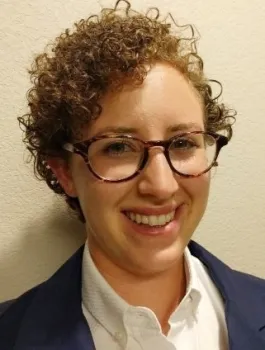
Her topic: "Evaluating the Relative Importance of Mechanisms for Diverse Plant Use in Agroecosystem Herbivore Mitigation: an Example in California Strawberries."
"As pest management strategies shift away from agrochemical use, practitioners aim to implement more ecologically friendly practices," Bick writes in her abstract. "One such practice uses diverse crops placed in an agroecosystem to mitigate pest damage. There are many possible mechanisms which facilitate this phenomenon. Knowing a diverse plant's mechanism(s) allows for more efficient field implementation."
"This presentation will evaluate the mechanism of the economic benefit of planting alfalfa in a California strawberry monoculture. Using a novel CO2 based sampling method, spatially explicit samples were taken at three sites over two years. We found that alfalfa did not act, as previously identified, a trap crop, but rather its presence actually increased natural enemies. This work serves as a framework for evaluation of the mechanism for use of diverse plants in agricultural landscapes."
Bick, who has accepted a postdoctoral position at the University of Copenhagen, specializes in integrated pest management (IPM). She received her bachelor's degree in entomology in 2013 from Cornell University, and her master's degree in entomology in 2017 from UC Davis.
Bick served as an emergency medical technician from 2008 to 2017 and gained her pesticide applicator's license in 2013. She was singled out to receive the Student Certification Award at the Entomological Society of America (ESA) meeting in 2018. In 2014, she was named a Board-Certified Entomologist, a honor bestowed on her at the ESA meeting.
Bick helped anchor the UC Davis Linnaean Games Team that won the national championship at the ESA meeting in 2016, and the UC (UC Davis and UC Berkeley) Linnaean Games Team that won the national championship again in 2018. She is the former vice president of the UC Davis Entomology Graduate Student Association (EGSA).

